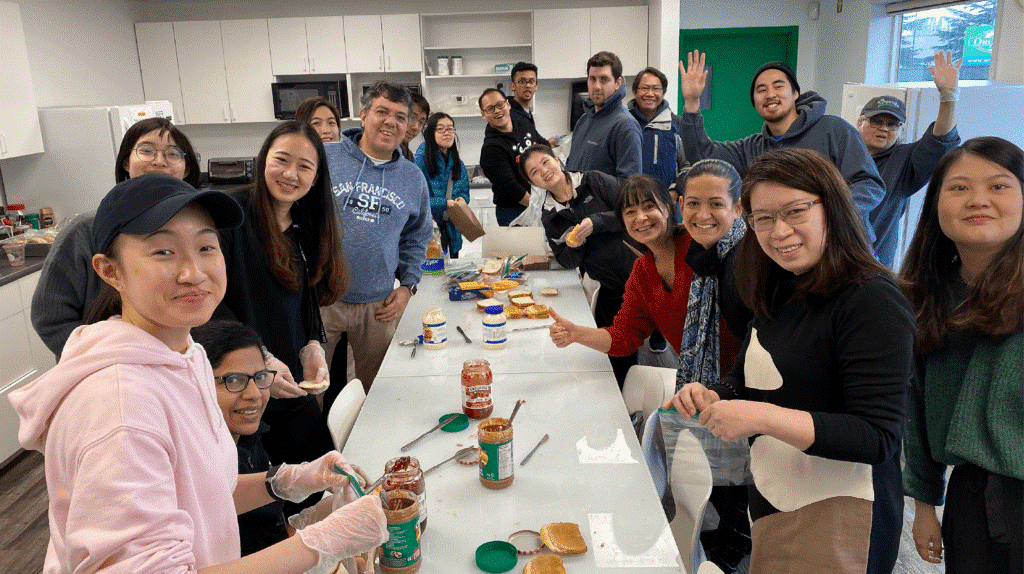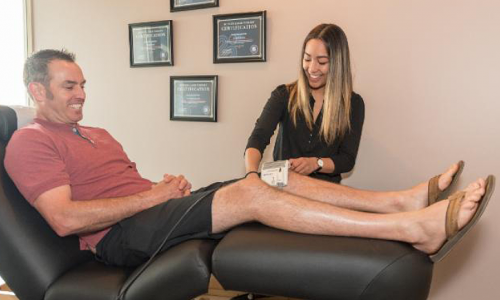
Have you ever ended up doing something you didn’t plan on doing? Well, for my first co-op, that is exactly what happened. As a Business student with an accounting major, I’ve always thought that I would not settle for any other opportunities outside an accounting firm. However, I proved myself otherwise by deciding to be an accounting intern at Organika Health Products, a growing manufacturing company in the natural health and supplement industry.
Although I did have a slight interest in the topic of health, it was not an industry I was familiar with. Therefore, I was skeptical of my ability to adapt to a company that’s not in the finance industry. Interestingly enough, not only did I learn more about the health industry through company events, but I also found myself learning a lot about accounting and how to adapt well within the company. Through my time as a co-op student, I also realized that the value of a co-op extends beyond the tasks itself. It also offered an opportunity to connect with people: those who are professionals in the accounting field and others who are skilled in different professions.
With Co-op being a learning program, many students challenge themselves by applying for jobs that they want to experience in but are unfamiliar with. It is normal for students to worry about their work experience or skill level. I remember researching the tasks stated on the job description to prepare myself for the first day. However, supervisors are usually understanding about the ramp-up phase. During the first week, my manager gave me fewer complex tasks so that I could familiarize myself with the company operations. While tasks became more challenging after a few weeks, most of my learning came from actively performing the tasks, asking my supervisor questions, and receiving constructive feedback. From proactively taking notes, I became more self-sufficient by referring to these notes and previous company examples for clarity. As my mentor had said before, technical skills can be developed, and all you need is just a willingness to learn and humility to readjust your techniques with the feedback received.
Although most of my learning happened on the job, the relevant courses I studied were also useful in helping me understand the terminology and the logic behind proposed solutions for problems that arose. Having some foundational knowledge of accounting also allowed me to identify between ideas that would work and wouldn’t work, allowing me to provide accurate suggestions. What really surprised me was that I was able to apply what I learnt from my business writing course in my role. I managed both a shared and personal email account, which meant receiving and reading hundreds of emails daily. Therefore, I understood why many people sent generic responses as it was efficient. However, with the knowledge taken from my course about the importance of being audience-centred, I constructed my emails to consider the reader since it did influence how they responded to us. As much as there are differences between your role at work and your knowledge attained from school, there are still ways that your knowledge can be applied on the job.
As Co-op students, we often hear coordinators and other students mention how beneficial it is to bond with your peers. Although this appears easier said than done, it is true that networking requires courage. It doesn’t have to be taking big steps outside your comfort zone, but taking small steps works just as well. When I first started, I remember just saying “Hello” to my colleagues and only responding to questions. By doing so, I let others know that I was open to connecting with them. Afterwards, I made an effort to participate in company events. Even though it seems simple, doing these repeatedly will increase your comfort around your co-workers. By taking small steps, you can eventually have more personal and in-depth conversations with your colleagues. While some co-workers appear to have their own circles, you will be surprised at others’ willingness to include you; all you need to do is take the first step.
Nevertheless, depending on your assigned tasks, you might be required to cooperate with various individuals from different departments. Since you are working closely with these individuals, I aim to strengthen these relationships by matching their faces to their names. Our company used Slack for our communication platform so we could easily identify employees and their roles. Whenever there’s a chance to network with these individuals at company events, I would initiate conversation and ask further about their interests to understand them more. Another great place to connect with individuals is the lunchroom and coffee station. Through conversations, finding common ground can allow connection on a personal level which can continue the relationship if work doesn’t become a common connector in the future anymore. With work being the primary connector, chances are that individuals talk about work as well. In these cases, you might learn some facts or more about how their typical workday is like. If they are from a different profession that you’re interested in, this is also the opportunity to ask them lots of questions.
Nonetheless, with any job, there will be some level of stress associated with it, either due to the nature of the tasks or the workplace environment. As we all know, stress not only affects your performance but also your wellbeing. Therefore, while you may feel more obligated to perform well as a co-op student, it is still important to know your boundaries. Oftentimes, your supervisor may not know how you are feeling unless you tell them. I was fortunate enough to be part of a company that cared about the employee’s health. We were offered free yoga classes to assist with de-stressing during work hours and various healthy snacks. Moreover, the relationships I built with my co-workers played a big role in helping me adapt as they may have had similar experiences before. If you want to keep your feelings private, you also have your co-op coordinator during your site visit to provide some guidance. There are many ways you can seek support from your coworkers, manager, friends, or even your Co-op coordinator so you aren’t alone throughout your Co-op.
Similar to how people say you can’t judge a book by its cover, the value of a co-op opportunity cannot be properly evaluated from reading the job description or researching the company. Perhaps, the actual experience and learning will surprise you, just like how it surprised me.














